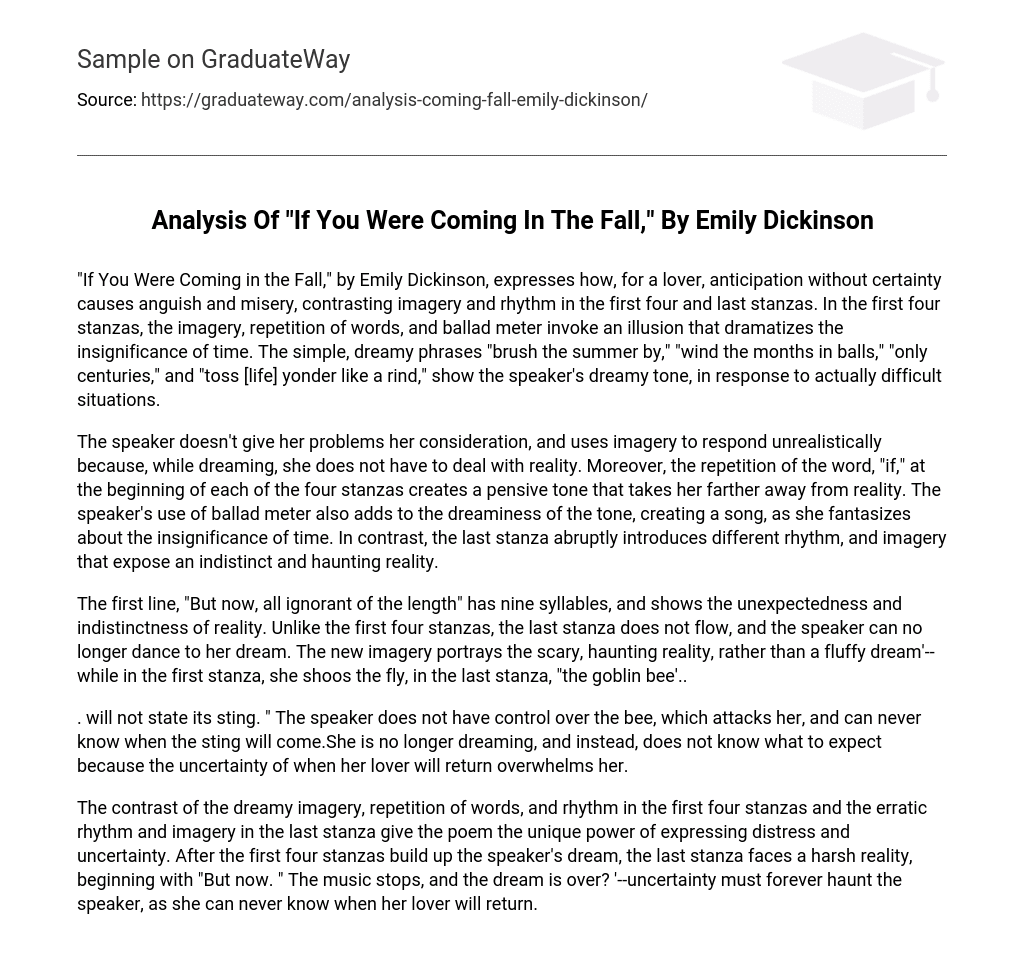“If You Were Coming in the Fall,” by Emily Dickinson, illustrates how anticipation without certainty causes anguish and misery for a lover. The contrasting imagery and rhythm used in the first four and last stanzas emphasize this concept. Through the use of imagery, repetition of words, and ballad meter, the first four stanzas create an illusion that highlights the insignificance of time. By using phrases like “brush the summer by,” “wind the months in balls,” “only centuries,” and “toss [life] yonder like a rind,” the speaker conveys a dreamy tone in response to challenging situations.
The speaker dismisses her problems and relies on imagery to escape from reality, particularly through dreaming. The recurring use of the word “if” in each stanza enhances a thoughtful atmosphere, distancing her from the real world. Additionally, the speaker’s choice of ballad meter contributes to the dreamy tone and creates a melodic quality as she daydreams about the unimportance of time. However, the final stanza disrupts this rhythm and unveils a vague and unsettling reality.
The opening line, “But now, all ignorant of the length,” consists of nine syllables, demonstrating the sudden and vague nature of reality. In contrast to the preceding four stanzas, the final stanza lacks fluidity, preventing the speaker from indulging in her reverie. This new imagery portrays a disturbing and haunting reality, departing from the dreamlike ambiance of the initial stanza. While the speaker dismisses a fly in the first stanza, in the last stanza, she encounters a menacing “goblin bee.”
The bee, whose sting the speaker cannot predict, attacks her. She is no longer dreaming and instead feels overwhelmed by the uncertainty of her lover’s return.
The first four stanzas of the poem use dreamy imagery, repetition, and rhythm to express distress and uncertainty. They build up the speaker’s dream. However, the last stanza brings a harsh reality with its erratic rhythm and imagery. It begins with “But now.” This abrupt change suggests that the dream is over. The speaker is uncertain if her lover will ever return, and this uncertainty will forever haunt her.





